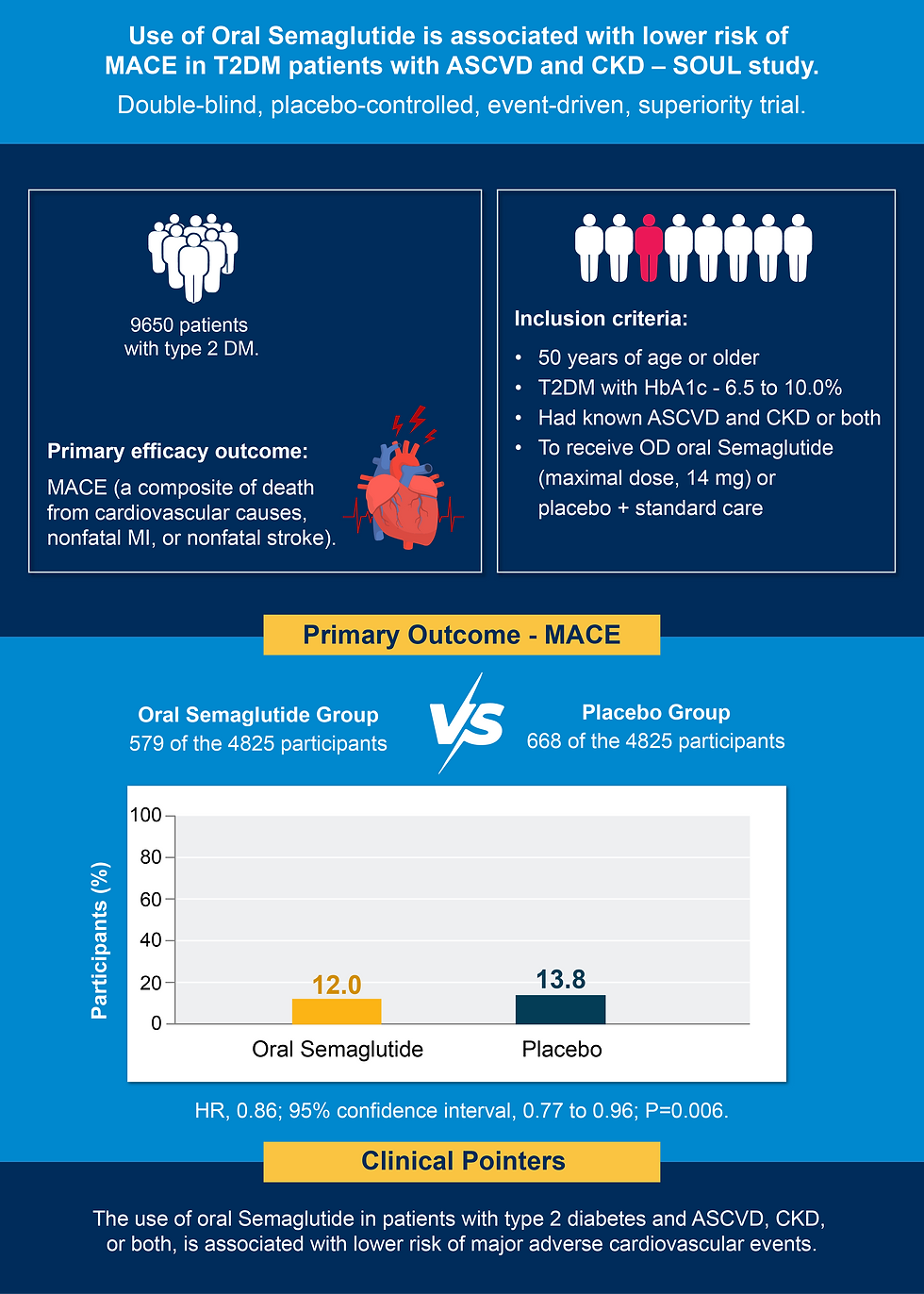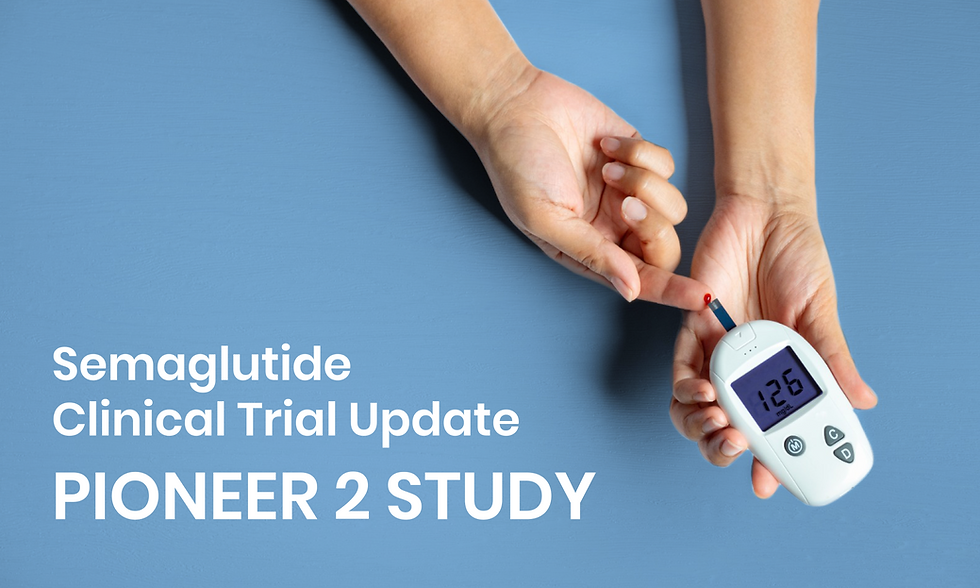Cardiovascular outcomes with Semaglutide in high-risk patients
- Ms. Roma Joglekar

- Sep 9, 2025
- 2 min read
Updated: Sep 10, 2025

Oral Semaglutide was approved by the FDA in September 2019 to improve blood glucose control in adult patients with type 2 diabetes (1).
Semaglutide is a GLP-1 receptor agonist that stimulates the β-cells in the pancreas for insulin secretion, suppresses glucagon secretion from pancreatic α-cells, and delays gastric emptying. It is the first GLP-1 receptor agonist formulated for oral administration. An absorption enhancement known as sodium N-(8-[2-hydroxylbenzoyl] amino) caprylate (SNAC) is used as a co-formulation that promotes its absorption in the stomach and increases the pH in the stomach which protects the peptide from enzymatic degradation (1).

Clinical Evidence - SOUL study
McGuire DK et al, assessed cardiovascular outcomes with Oral Semaglutide in patients with type 2 diabetes, atherosclerotic cardiovascular disease, chronic kidney disease, or both. The primary efficacy outcome of the SOUL study was major adverse cardiovascular outcomes assessed in a time-to-first-event analysis (2).
Study Summary

About the Author
Ms. Roma Joglekar is a Sports Physiotherapist with three years of on-field experience in helping athletes recover, improve and excel in their performance. Roma is passionate about medical science and has keen interest in simplifying complex medical information and share it with healthcare professionals, patients, care givers and the general population.
Abbreviations
HbA1c: Glycated haemoglobin; MACE: Major Adverse Cardiovascular Events.
References
Hughes S, Neumiller JJ. Oral Semaglutide. Clin Diabetes. 2020;38(1):109-111.
McGuire DK, Marx N, Mulvagh SL, et al; SOUL Study Group. Oral Semaglutide and Cardiovascular Outcomes in High-Risk Type 2 Diabetes. N Engl J Med. 2025 May 29;392(20):2001-2012.
Disclaimer
The matter published on this platform has been developed by independent medical writers from various healthcare backgrounds including members of MedWriters Alumni Network. Although great care has been taken in compiling and checking the information, the authors, Rxnews team and its partners or agents, and sponsors shall not be responsible or in any way liable for any errors, omissions, or inaccuracies in this blog article whether arising from negligence or otherwise, however or for any consequences arising therefrom. The inclusion and exclusion of any product do not mention that the publisher advocates or rejects its use generally or in any particular field or field. For any complaints or feedback please write to content@rxnews.in







Comments